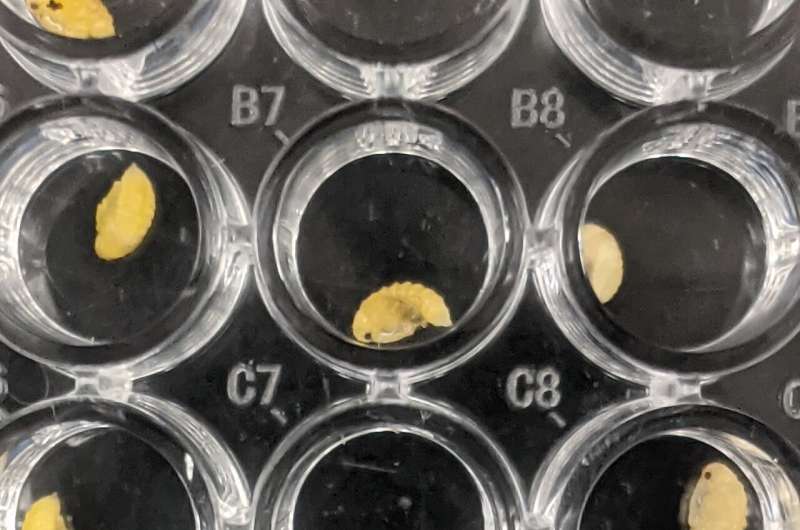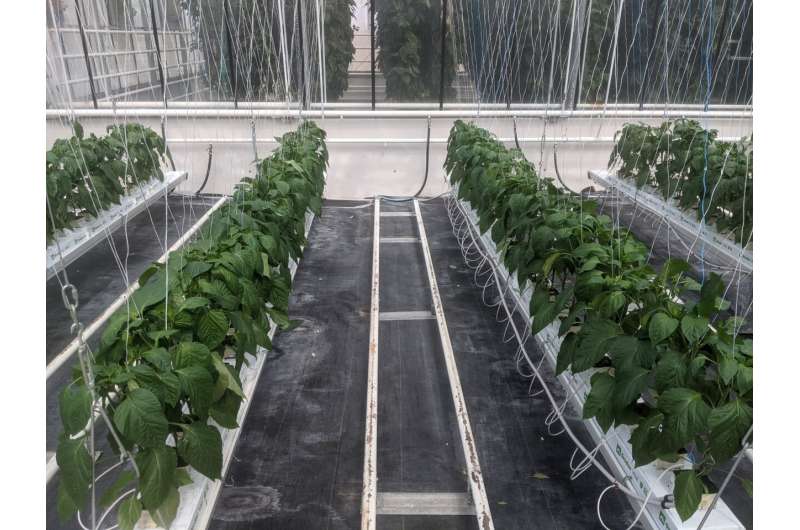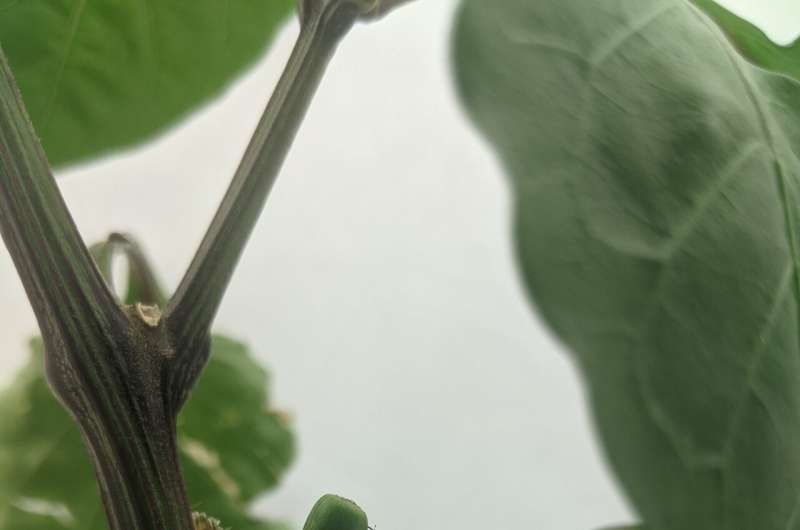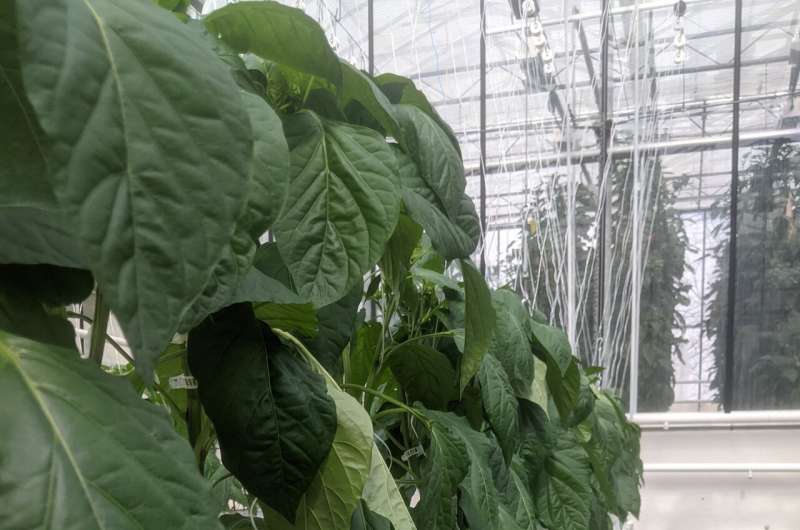
[ad_1]

Key tray Eugene K. Antony pupae Credit: Jacob Basso, University of Guelph
For the first time, researchers in Canada have investigated the use of sterile insect techniques to control populations of pepper weed, Anthonomus eugenii, an economically important crop in North America.
PaperPublished in Pest Management Science, revealed compelling results on the use of gamma irradiation as a disinfection technique to improve the sustainability and effectiveness of pepper weevil management worldwide. The study was a collaboration between Bruce Power, Nordean Inc., the University of Guelph, Agriculture and Agri-Food Canada, and Fruit and Vegetable Growers of Canada.
A. eugenii is a significant challenge to pepper growers in much of North America, causing millions of dollars worth of crop damage annually. gave Beetle larvae Attacks the flowers and immature fruits of capsicum plants, causing up to 90% yield loss. A. eugenii populations are particularly difficult to manage because beetle larvae develop within the protective confines of pepper fruit.
Roselyne Labbe, greenhouse entomologist at Agriculture and Agri-Food, Canada, and corresponding author of the study, explained the challenges in identifying effective strategies to manage A. eugenii populations. “In earlier research, we found that few conventional, low-risk, or microbial insecticides could effectively knock down mature populations of pepper weevils on greenhouse pepper crops.”

Rows of peppers at Agriculture and Agri-Food Canada’s Harrow Research and Development Centre, Harrow, Ontario. Credit: Jacob Basso, University of Guelph
“Even assessments of parasitoids (insects that can be used to biologically control pest populations) that attack the larval stages of pepper weed have limitations, as they are sometimes It was difficult to gain access to the hosts inside the fruit cavity.”
A team led by Jacob Basso, a researcher at the University of Guelph, turned their attention to this. Sterile Insect Techniques (SIT), a genetic control method where large numbers of sterile insects are released into the wild to reduce the reproductive success of the insects.
Labbe noted, “The insect-sterile technique looked promising because of prior research with this technique for control of a congeneric cotton weevil (Anthonomis grandis) of pepper. Cannabis“
The key to a successful SIT program is the selection of the appropriate dose of radiation to sterilize the target species. The authors note, “It is critical to determine the minimum radiation dose at which insects are effectively sterilized but retain the ability to successfully locate and mate with wild individuals. are.”

Pepper weevil (Eugene Antony). Credit: Jacob Basso, University of Guelph
Analysis of the effects of different doses of gamma radiation on A. eugenii pupae revealed that irradiation of both males and females at 110 Gy resulted in complete sterilization of individuals that if released in field sites. If done, they cannot participate in the production of children.
The researchers noted that the lifespan of beetles irradiated on this diet was reduced by less than two weeks and therefore recommended that A. eugenii SIT programs release sterilized insects more frequently at intervals of no more than two weeks. , to compensate for their deaths.
For the sterile insect technique to be a viable A. eugenii management strategy for growers, several practical issues need to be addressed. “We still need to test the dispersal potential of irradiated weevils in the field and, most importantly, examine the mating competition of sterile males against non-irradiated male weevils,” Labbe noted. “

A row of bell pepper plants. Credit: Jacob Basso, University of Guelph
The team now hopes to apply SIT to control other pests of horticultural crops. “A lot of information is still lacking in these areas. For example, we are interested in applying this strategy to the control of lepidopteran pests that routinely attack greenhouse crops,” Labbe said. said
More information:
Jacob V. Basu et al., Evaluation of sterility and quality of gamma-irradiated pepper seedlings, Anthonomys eugenei (Coleoptera: Curculionidae), towards the development of a sterile insect technique. Pest Management Science (2023). DOI: 10.1002/ps.7898
Provided by the Society of Chemical Industry
Reference: Conserving Peppers: Unlocking the Potential of Sterile Insect Techniques (2024, February 23) Accessed 23 February 2024 at https://phys.org/news/2024-02-peppers-potential-sterile-insect-technique.html Obtained from
This document is subject to copyright. No part may be reproduced without written permission, except for any fair dealing for the purpose of private study or research. The content is provided for informational purposes only.
[ad_2]

I appreciate, cause I found just what I was looking for. You have ended my four day long hunt! God Bless you man. Have a great day. Bye